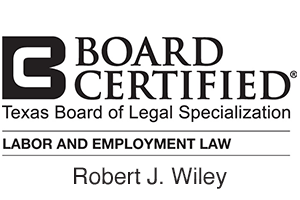in Austin, Texas
Which Family Members are Covered
FMLA Attorneys Representing Employees in Austin and Other Texas Cities
The Family and Medical Leave Act (FMLA) applies to private employers with at least 50 employees for at least 20 workweeks, as well as public agencies and schools, regardless of the number of employees. Eligible employees can take 12 weeks of job-protected but unpaid leave for several different reasons. One such reason is to care for a family member who has a serious health condition. If you want to take FMLA leave, you may be wondering which family members are covered by the law. Our Austin FMLA lawyers can make sure that you understand the full scope of your rights.
Which Family Members are Covered Under the FMLA?
One reason for FMLA leave is a serious health condition of a member of your immediate family. The person must be a member of your immediate family: your spouse, your child, or your parent. In order to confirm that you have a family relationship with the person, your employer can require you to provide reasonable documentation or a statement of the family relationship. The documentation could include a statement from the employee, a court document, or a birth certificate.
Under the FMLA, a spouse is a husband or wife as it is defined by the state in which you were married, including marriages that are common law or same sex marriages. It can also include a husband or wife in a marriage that originated outside the country, if at least one state would have allowed the marriage.
A parent under the FMLA can include a biological parent, adoptive parent, stepparent, foster parent, or person who stood in loco parentis to you when you were a child. However, the FMLA will not allow you to take leave for an in-law, even if you are emotionally close to the in-law.
A son or daughter under the FMLA includes a biological child, foster child, adopted child, stepchild, legal ward, or child to whom you stand in loco parentis if any of these children are minors. It also includes any of these people if they are 18 or older but are unable to care for themselves due to a physical or mental disability at the time that you are planning to start your FMLA leave.
FMLA leave may be available to care for adult children with disabilities. The disability needs to meet the definition of a disability under the Americans with Disabilities Act (ADA). A physical or mental impairment that seriously limits one or more major life activities counts as a physical or mental disability under the FMLA. It should render the adult child unable to care for themselves due to the disability and be considered a serious health condition.
To be unable to care for oneself means that your adult child needs active assistance or supervision to provide daily self-care regarding at least three daily living activities or instrumental activities of daily living. The former includes hygiene, bathing, grooming, and consuming food. The latter includes cooking, cleaning, shopping, bill paying, keeping up a residence, and using a post office.
You can be considered in loco parentis to a child for whom you have daily responsibilities to support. This can be someone with whom you do not have a legal or biological relationship, but it may be harder to meet an employer’s request for information to show that FMLA leave must be given.
Under the FMLA, you can also take military caregiver leave for a family member. This is up to 26 weeks of paid or unpaid leave to which you can be entitled if your parent, spouse, child, or next of kin is recovering after suffering a severe injury or illness while serving on active military duty. The leave is provided per injury and per service member. Unless the same family member is hurt again, or another family member is injured while on active duty in the military, you cannot get additional leave for this purpose.
The next of kin for a covered service member means that you are the nearest blood relative other than the covered service member’s daughter, son, parent, or spouse, in a specified order of priority. “Next of kin” are blood relatives who are given legal custody of a covered service member by a court decree or statutory provision, as well as sisters, brothers, grandparents, uncles, aunts, and first cousins.
There is an exception when a covered service member has specifically designated a different blood relative as their nearest blood relative for the purposes of this type of FMLA leave. But if there is no designation, more than one family member with the same degree of relationship can be considered next of kin, and they can take their FMLA leave to give care to the covered service member one after the other or simultaneously.
FMLA Interference and Retaliation
An employer may not interfere with your FMLA leave rights to care for a family member with a qualifying condition. Interference can include refusing to permit FMLA leave, refusing to certify FMLA leave, refusing to return you to your previous position, or requiring employees to engage in unreasonably onerous activity to assert FMLA rights.
Similarly, an employer may not retaliate against an employee for seeking FMLA leave or using FMLA leave to care for a covered family member. For example, an employer may use FMLA absences to discipline an employee for attendance violations.
Right to Return to Work
FMLA leave is job-protected leave. That means an employee who takes FMLA leave for to care for a covered family member has the right, under most circumstances, to return to the same position. Furthermore, there are specific requirements regarding what medical documentation an employer can require during the leave and upon return from leave.
Discuss Your FMLA Options with an Austin Lawyer
If you hope to take FMLA leave and are concerned about which family members are covered by the law, you should consult the lawyers at our Austin firm. Austin Employment Lawyers, P.C. also represents employees in cities such as Georgetown, Round Rock, Cedar Park, Pflugerville, Leander, Del Valle, Kyle, San Marcos, San Antonio, New Braunfels, and Fredericksburg. Call us at (512) 271-5527 or use our online form to set up your appointment. We also can advise people who need a disability discrimination lawyer to protect their rights against mistreatment on the job.







